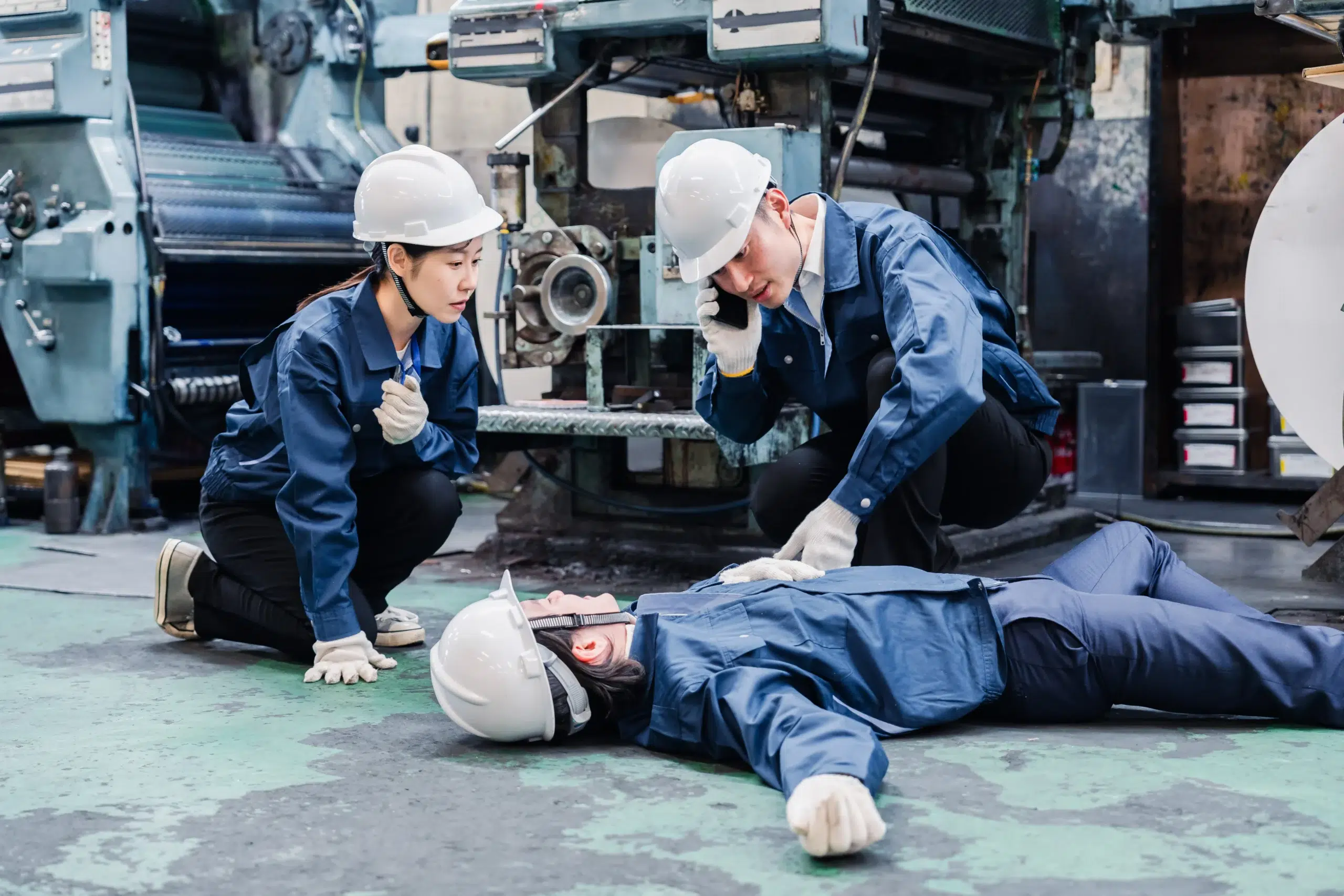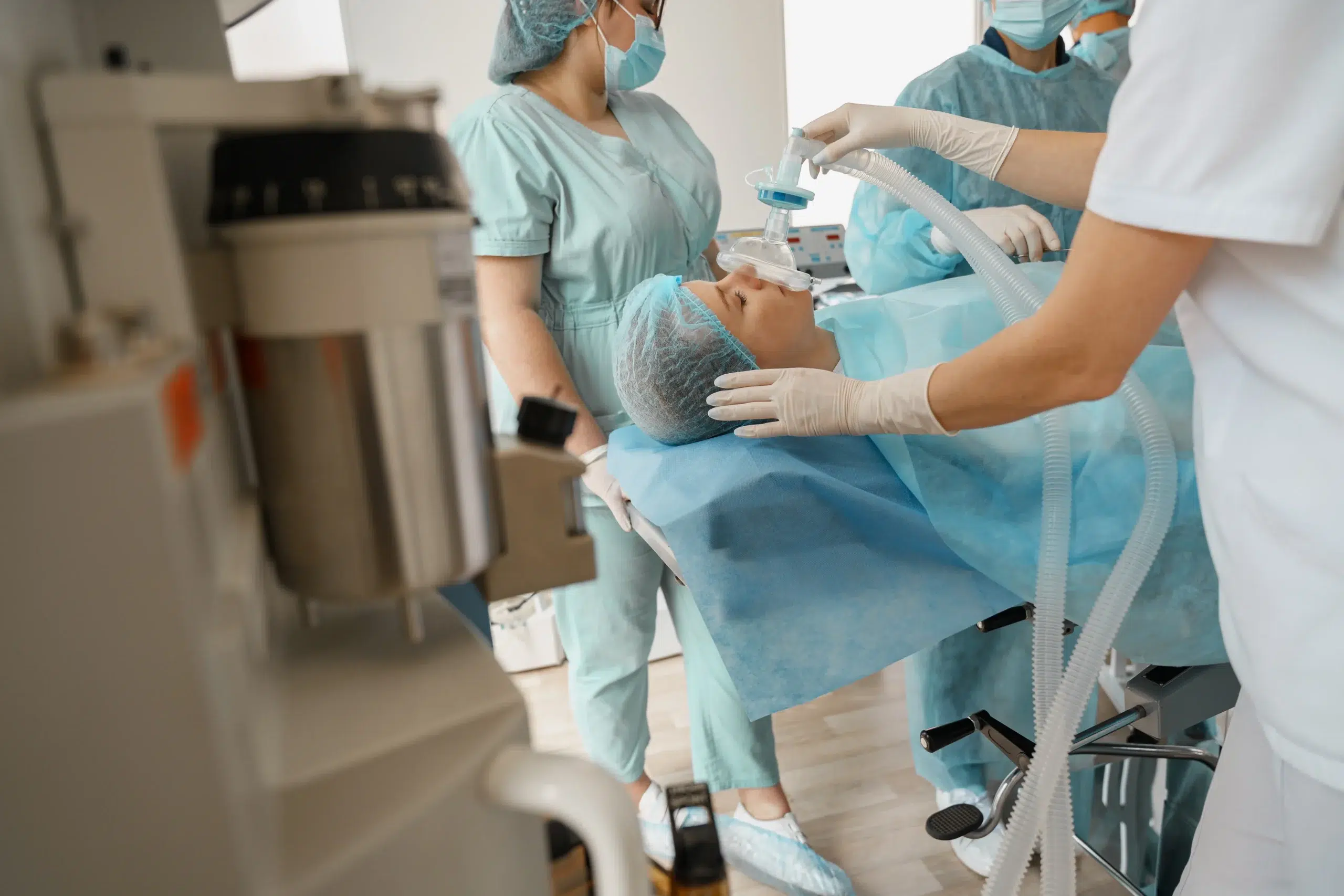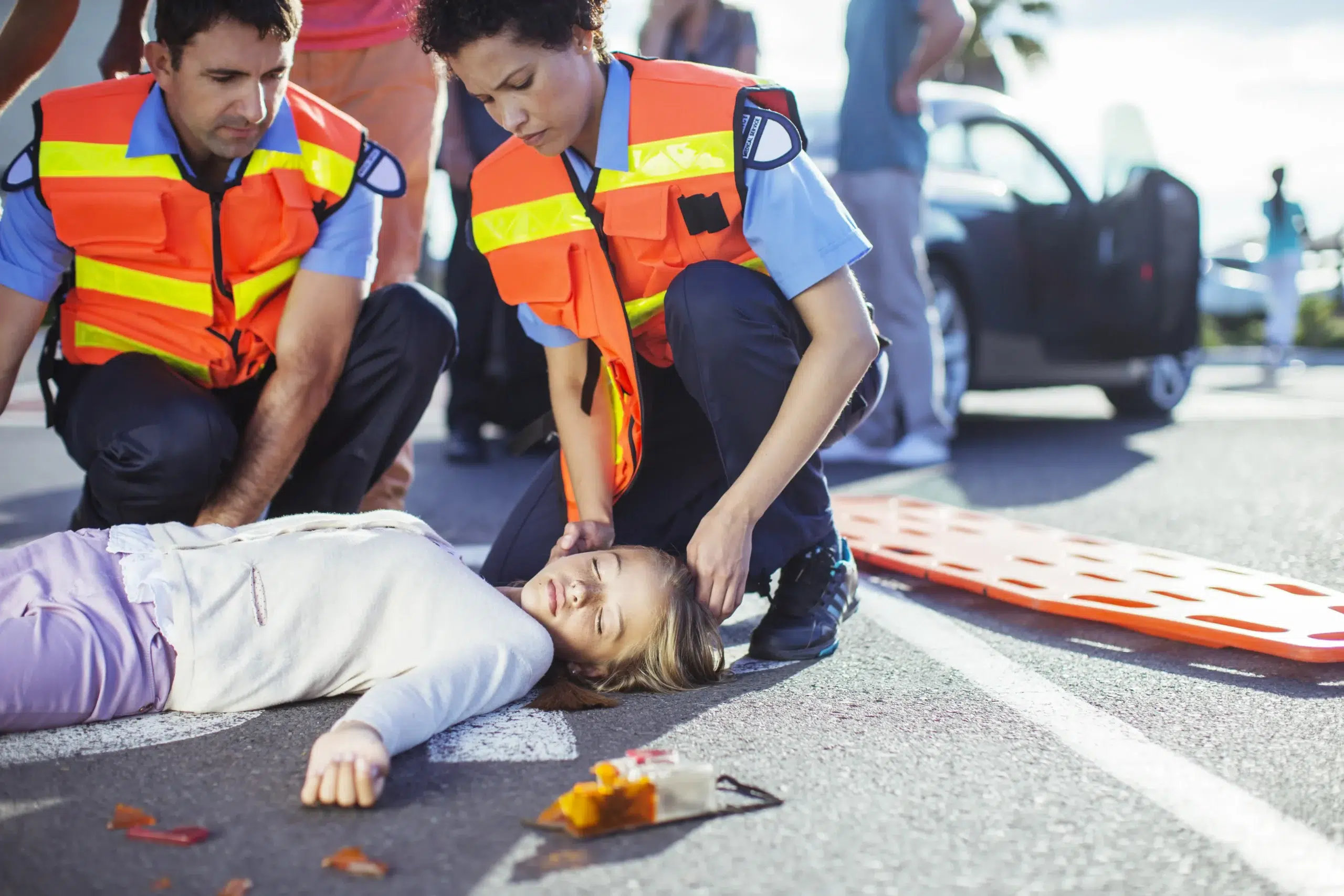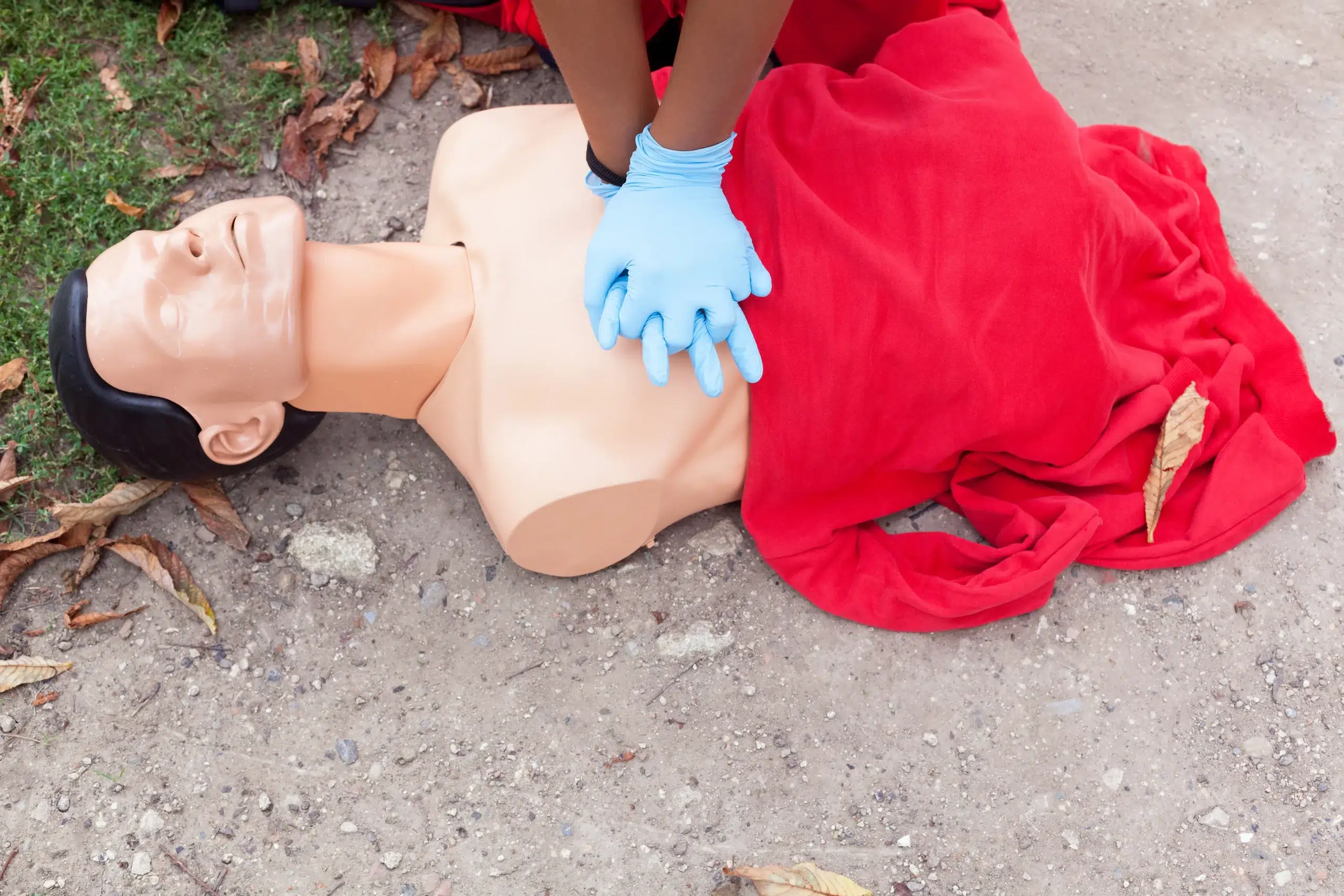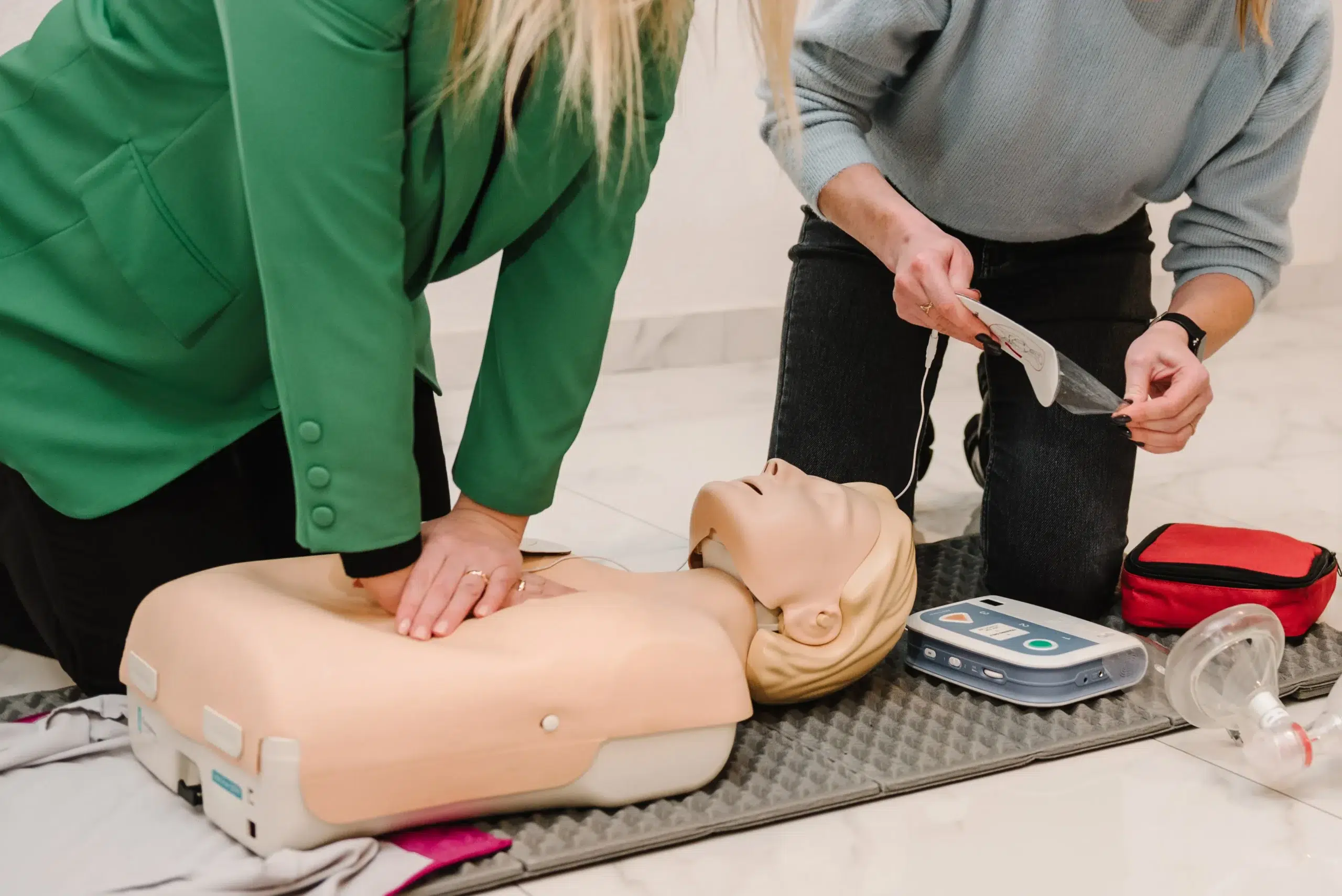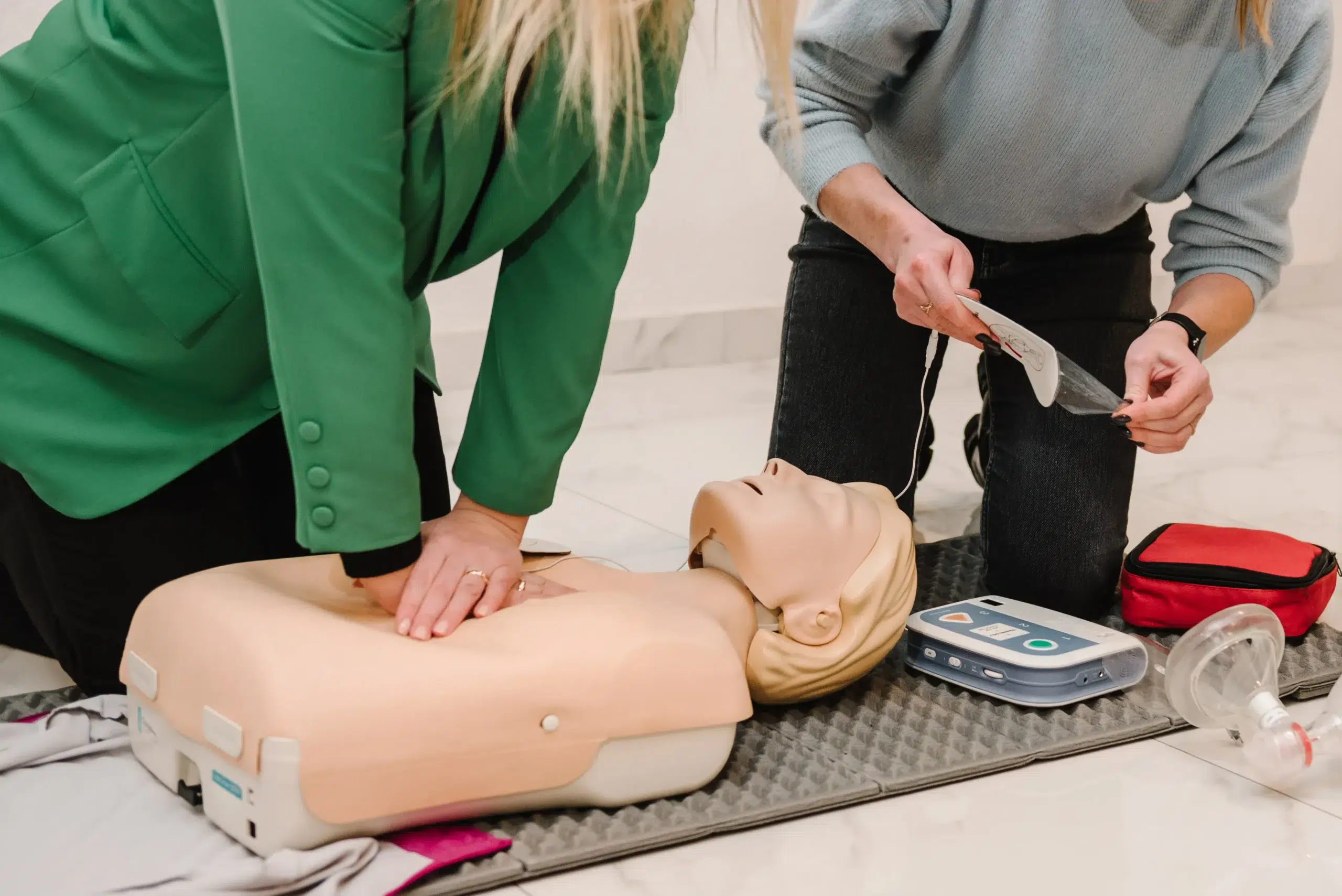Empower yourself with the skills to save a life. CPR certification in Citrus Heights provides the training and confidence to respond effectively during medical emergencies. This guide breaks down the essentials of CPR certification, exploring the various courses available, their costs, and the steps to get certified. Whether you’re a healthcare professional seeking to maintain your credentials or a community member wanting to learn essential life-saving skills, we’ll help you navigate the options and find the right CPR certification course in Citrus Heights. We’ll also discuss the importance of choosing a qualified instructor, understanding different learning formats, and preparing for your certification exam.
Key Takeaways
- CPR skills empower everyone: Whether you’re a healthcare provider, teacher, parent, or simply a concerned citizen, learning CPR equips you to make a real difference during emergencies. Select the course that best suits your individual needs and goals.
- Find the right CPR training in Citrus Heights: Explore the variety of courses and formats available, from basic CPR/First Aid to advanced certifications. Consider in-person, online, or blended learning options to fit your schedule and preferred learning style. Don’t forget to compare costs and look for group discounts.
- Stay current with your CPR certification: Maintain your lifesaving skills by recertifying every two years. Regular practice and continuing education will boost your confidence and ensure you’re always ready to respond effectively.
What is CPR Certification & Why Does It Matter?
What is CPR and why is it important?
CPR stands for cardiopulmonary resuscitation. It’s a lifesaving technique used when someone’s breathing or heartbeat has stopped. CPR combines chest compressions and rescue breaths to circulate oxygenated blood to the brain and other vital organs. Learning CPR can literally double or triple a person’s chance of survival after cardiac arrest. Think of it as equipping yourself with the power to make a real difference in a critical situation. For reliable information on CPR training, the American Red Cross offers comprehensive resources.
Who in Citrus Heights needs CPR certification?
CPR certification isn’t just for medical professionals. While healthcare providers and students often pursue certifications like BLS or ACLS, it’s a valuable skill for anyone. Parents, caregivers, teachers, coaches—really, everyone in Citrus Heights can benefit from knowing CPR. Even if you don’t work directly in healthcare, having CPR training empowers you to respond effectively during emergencies. Consider the peace of mind that comes with knowing you can help a loved one, a stranger, or even a pet in a life-threatening situation. If you’re exploring CPR and first aid training in Citrus Heights, this helpful guide lists various courses, from basic CPR and first aid to more advanced certifications. For group discounts, explore the options available through Citrus Heights CPR Classes. They cater to families, businesses, and community groups.
CPR Certification Courses: What’s Available?
Choosing the right CPR certification course depends on your specific needs and career goals. Let’s break down some of the most common options available in Citrus Heights.
Basic Life Support (BLS)
The American Heart Association (AHA) BLS CPR course provides the foundational knowledge and skills healthcare providers and other professionals need to respond to life-threatening emergencies. It emphasizes teamwork, high-quality chest compressions, and ventilation techniques, along with training on AED use and relief of choking. BLS certification is often a prerequisite for other advanced certifications. Citrus Heights CPR Classes offers these courses, empowering individuals to become confident first responders.
Advanced Cardiovascular Life Support (ACLS)
ACLS certification builds upon the fundamentals of BLS, focusing on advanced interventions for adult patients experiencing respiratory and cardiovascular emergencies. This course covers topics like airway management, rhythm recognition, and pharmacology. It’s designed for healthcare professionals, including physicians, nurses, and paramedics, involved in managing cardiovascular emergencies. Providers like Safety Training Seminars offer ACLS courses in and around Citrus Heights.
Pediatric Advanced Life Support (PALS)
PALS certification equips healthcare providers with the knowledge and skills to manage pediatric emergencies effectively. The course covers a range of topics, from respiratory distress and shock to cardiac arrest and post-resuscitation care. PALS certification is essential for professionals working in pediatric intensive care units, emergency departments, and other settings where they might encounter critically ill children. Safety Training Seminars also offers PALS training alongside other AHA-certified courses.
Heartsaver CPR/AED and First Aid
The Heartsaver CPR/AED and First Aid course is designed for anyone who wants to learn basic life-saving skills—not just healthcare professionals. This course teaches participants how to recognize and respond to cardiac arrest, choking, and other medical emergencies. It also covers basic first aid techniques for common injuries like cuts, burns, and sprains. This certification meets OSHA requirements and is valuable for anyone working in childcare, education, or other community settings. In-home CPR offers these courses in Citrus Heights.
Course Formats, Duration, & Costs
Finding the right CPR class often comes down to format, time commitment, and budget. Citrus Heights offers several options to fit your needs. Let’s break down what you can expect.
In-person, online, and blended learning
Citrus Heights CPR classes offer a few different learning formats. Hands-on learners often prefer in-person group sessions, which provide direct practice and interaction. For a more personalized experience, in-home training might be a better fit. If you need flexibility, some providers offer online courses, allowing you to learn at your own pace. This blended learning style can be a great way to fit CPR training into a busy schedule.
Typical course durations
Most CPR and first aid courses in Citrus Heights take between two and four hours. The exact time commitment depends on the specific course and how much material it covers. A basic CPR course might be shorter, while a combined CPR/First Aid course will likely be longer. This timeframe gives participants enough time to build a solid understanding of these essential techniques.
Pricing and average costs
CPR certification costs in Citrus Heights vary based on the provider and the type of course. A basic CPR/AED course might cost around $35, while a more comprehensive First Aid/CPR/AED course could be closer to $45. Check with specific providers like Citrus Heights CPR Classes for their current pricing. They also have a low price guarantee, so you know you’re getting a good value.
Group discounts and special offers
If you’re certifying a group, like coworkers or a community organization, ask about group discounts. Many training centers in Citrus Heights offer reduced rates for larger groups, making training more affordable. This can be a great way to save money and ensure everyone learns these vital skills.
Top CPR Certification Providers in Citrus Heights
Finding the right CPR certification provider is key to receiving high-quality training. Here are some of the leading options in Citrus Heights:
American Heart Association (AHA)
The AHA offers the widely recognized RQI (Resuscitation Quality Improvement) program, a popular choice for medical professionals seeking BLS, ACLS, and PALS certification. This innovative approach focuses on frequent, low-dose practice to maintain crucial skills. While the AHA sets the standards for CPR training, they don’t directly conduct courses. You’ll need to find an AHA-authorized Training Center like Citrus Heights CPR Classes to get certified.
American Red Cross
The American Red Cross provides a range of CPR training courses, including certification options. They offer flexible learning formats, such as in-person, online, and blended learning, catering to diverse learning styles and schedules. This makes it convenient for those balancing work, family, or other commitments.
Citrus Heights CPR Classes
Citrus Heights CPR Classes offers a comprehensive selection of courses, covering everything from basic CPR and first aid to advanced certifications like BLS, ACLS, and PALS. This ensures you can find the training to meet your specific needs and career goals. They also offer convenient group discounts and a low price guarantee. For any questions, contact Citrus Heights CPR Classes directly.
Safety Training Seminars
Safety Training Seminars delivers various AHA-certified courses, including BLS, CPR, ACLS, PALS, and First Aid. They offer classes in Citrus Heights and surrounding areas, broadening access to quality training. This can be particularly helpful if you’re looking for options closer to home or work.
Folsom CPR Classes
Folsom CPR Classes provides a comprehensive range of AHA-certified courses, including BLS, ACLS, PALS, and First Aid. Known for their convenient daily classes and low price guarantee, they offer a practical and affordable path to certification.
Get Certified: Process & Renewal
Steps to get certified
Getting your CPR certification in Citrus Heights is straightforward. First, choose the right course for your needs. Citrus Heights CPR Classes offers a range of options, from basic CPR and First Aid to more specialized certifications like BLS for healthcare providers. Once you’ve selected your course, check the schedule and register for a class that fits your availability. Our classes are offered daily in over 60 cities, making it easy to find one near you. After completing the course, you’ll receive your certification. For those seeking cost-effective options, we also offer group discounts.
How long is certification valid?
CPR certifications are typically valid for two years. This timeframe ensures that your knowledge and skills remain current. Knowing your certification’s expiration date is crucial. Keep track of this date and plan to recertify before it lapses.
Recertification: Process & Frequency
Staying current with your CPR certification is vital. Recertification is generally required every two years. The process is similar to initial certification: choose your course, register, and complete the training. Citrus Heights CPR Classes offers various recertification courses, including RQI programs for healthcare professionals. Contact us to learn more about our low price guarantee and recertification options through our contact us page.
Choose the Right CPR Certification Course
Finding the right CPR certification course takes a little research. It’s like finding the right pair of shoes—you need the right fit for your specific needs. Here’s how to find your perfect match:
Assess your needs and goals
First, consider why you want to get certified. Are you a healthcare provider needing BLS certification? Or are you a parent, teacher, or coach looking for a basic CPR/First Aid course? Healthcare providers often need certifications like BLS or ACLS, while others might focus on basic life support and first aid. Knowing your goals helps narrow down your choices.
Compare courses and providers
Citrus Heights offers a range of CPR courses, from basic community training to advanced professional certifications. Take time to compare what each course covers. Do you need CPR/AED training? What about First Aid certification? Look at different providers like the American Heart Association and the American Red Cross to see what they offer. Citrus Heights CPR Classes provides a variety of AHA-certified courses, including BLS, ACLS, and PALS.
Instructor qualifications and experience
A good instructor makes all the difference. Look for certified instructors with solid experience. Check if they have a background in healthcare or emergency response. Reading reviews or asking for recommendations can offer insights into an instructor’s teaching style. Safety Training Seminars also offers AHA-certified courses, and researching their instructors is helpful.
Flexible scheduling
Life is busy, so finding a course that works with your schedule is important. Look for providers that offer weekend or evening classes, online options, or even in-home training. Flexible scheduling makes it easier to fit the training into your life. Consider whether you prefer in-person group sessions or a more individual approach.
Tips for certification success
Once you’ve chosen your course, prepare for success. Review any pre-course materials, arrive on time, and participate actively. Hands-on practice is key for mastering CPR skills. For healthcare providers, consider programs like RQI that emphasize regular skills sessions and feedback to maintain proficiency. Consistent practice builds confidence and prepares you for an emergency. Remember to use any practice resources or refresher courses your provider offers.
Related Articles
- Why CPR Matters in Healthcare – CPR and First-Aid Training
- The Importance of CPR in Saving Lives
- CPR Classes in Sacramento: The Complete Guide – Citrus Heights CPR Classes
- ACLS Renewal Citrus Heights: Your Complete Guide – Citrus Heights CPR Classes
- Best CPR Training in Sacramento: Courses & Providers – Citrus Heights CPR Classes
Frequently Asked Questions
What’s the difference between BLS and Heartsaver CPR?
BLS (Basic Life Support) is geared towards healthcare providers and those in professional rescuer roles, covering more in-depth techniques and team dynamics. Heartsaver CPR/AED and First Aid focuses on essential life-saving skills for anyone, including laypeople, and often includes basic first aid training. The best choice depends on your specific needs and whether your workplace requires a particular certification.
How do I choose a CPR certification provider in Citrus Heights?
Consider factors like the provider’s reputation, instructor experience, course offerings, schedule flexibility, and cost. Look for providers offering AHA-certified courses, which are widely recognized. Reading reviews and comparing what different providers offer can help you make an informed decision. Don’t hesitate to contact providers directly with any questions.
I’m nervous about the skills testing. What should I expect?
CPR courses involve demonstrating skills like chest compressions and rescue breaths on mannequins. Your instructor will guide you through each step and provide feedback. The goal isn’t to make you feel stressed but to build your confidence and competence. Practice beforehand and ask your instructor any questions you have.
What if I have a physical limitation? Can I still get certified?
Absolutely. Talk to your chosen training center about any physical limitations you have. They can offer modifications or adaptive techniques to help you learn and perform CPR effectively. The goal is to empower everyone to learn these life-saving skills, regardless of physical differences.
How can I stay up-to-date on my CPR skills after getting certified?
Regular practice is key. Many providers offer refresher courses or resources to help you maintain your skills. Consider joining a CPR practice group or using online resources to stay sharp. Also, remember to recertify every two years to keep your certification current and your skills fresh.


